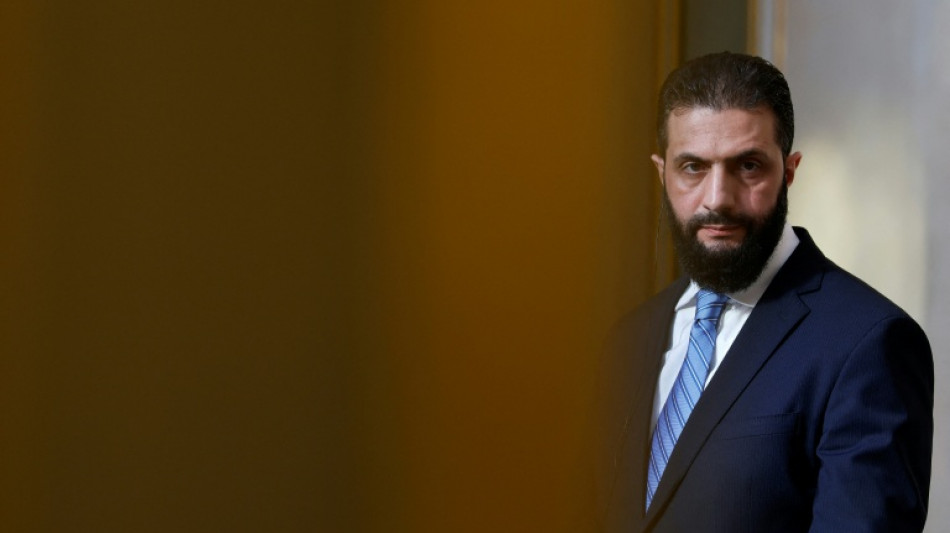
-
 Man Utd agree deal to sign Brentford winger Mbeumo: reports
Man Utd agree deal to sign Brentford winger Mbeumo: reports
-
New clashes rock Syria's Druze heartland as tribal fighters reinforce Bedouin
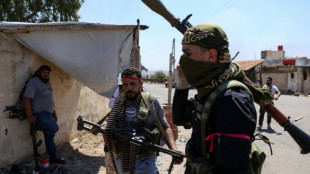
-
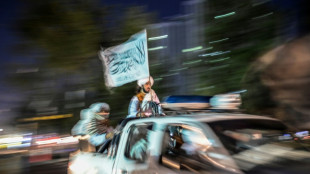 Germany presses ahead with deportations to Afghanistan
Germany presses ahead with deportations to Afghanistan
-
Crews rescue 18 miners trapped in Colombia
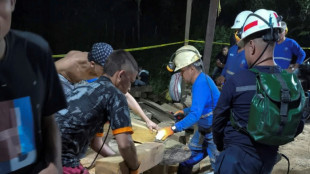
-
 McIlroy five back as Harman leads British Open
McIlroy five back as Harman leads British Open
-
Lyles the showman ready to deliver 100m entertainment

-
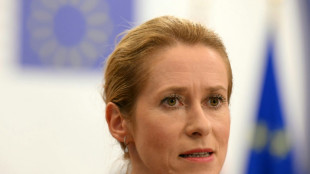 EU targets Russian oil in tough new Ukraine war sanctions
EU targets Russian oil in tough new Ukraine war sanctions
-
Liverpool line up swoop for Frankfurt striker Ekitike: reports

-
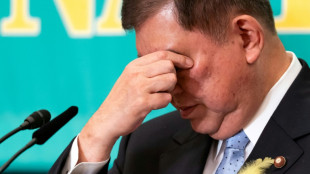 Stocks up, dollar down tracking Trump moves and earnings
Stocks up, dollar down tracking Trump moves and earnings
-
Three Sri Lankan elephants killed in blow to conservation efforts

-
 Indie game studios battle for piece of Switch 2 success
Indie game studios battle for piece of Switch 2 success
-
Former Liverpool and Man Utd star Ince banned for drink-driving
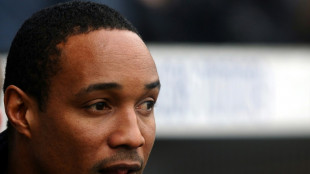
-
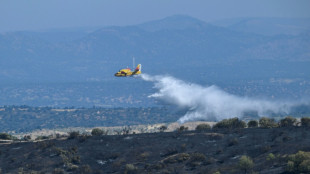 Spain taming fire that belched smoke cloud over Madrid
Spain taming fire that belched smoke cloud over Madrid
-
Top Holy Land clerics visit Gaza after deadly church strike
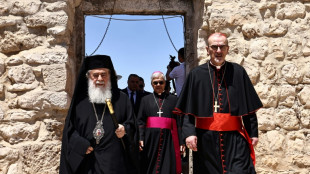
-
 Scotland end tour with seven-try thrashing of Samoa
Scotland end tour with seven-try thrashing of Samoa
-
Sharaa's pullout from Syria Druze heartland exposes shaky leadership
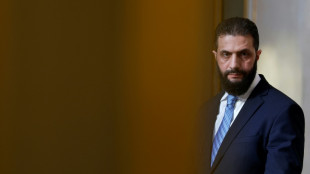
-
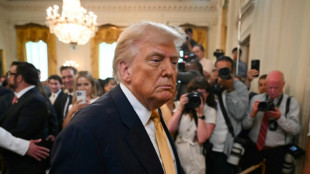 Trump team to seek release of Epstein documents
Trump team to seek release of Epstein documents
-
Wrexham chief wants playoff push after promotion to Championship

-
 Snoop Dogg becomes co-owner of Championship club Swansea
Snoop Dogg becomes co-owner of Championship club Swansea
-
Pakistan bans new hotel construction around tourist lakes
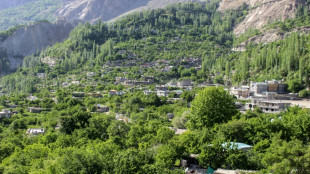
-
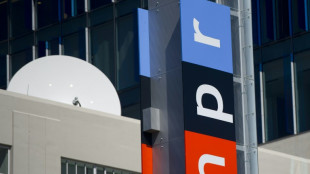 Trump's budget hacksaw leaves public broadcasting on precipice
Trump's budget hacksaw leaves public broadcasting on precipice
-
New deep sea mining rules lack consensus despite US pressure
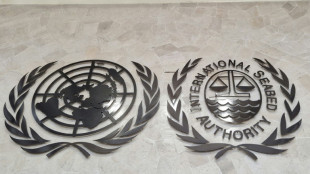
-
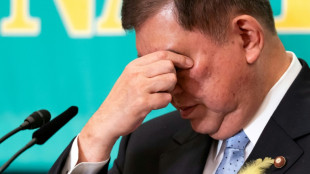 Stocks head for positive end to week, Tokyo struggles ahead of vote
Stocks head for positive end to week, Tokyo struggles ahead of vote
-
North Korea bars foreign tourists from new seaside resort

-
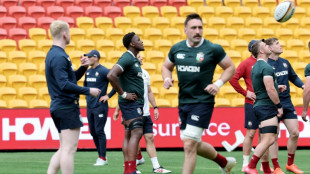 Lions ignoring the noise ahead of Wallabies Test
Lions ignoring the noise ahead of Wallabies Test
-
CBS says Stephen Colbert's 'The Late Show' to end in May 2026

-
 Lions block Wallabies flanker Samu from Pasifika team
Lions block Wallabies flanker Samu from Pasifika team
-
Indian state blames cricket team for deadly stampede
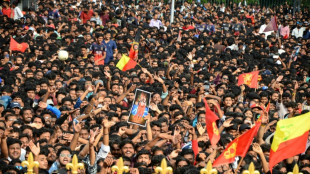
-
 Trump threatens to sue WSJ, Murdoch over story on alleged 2003 letter to Epstein
Trump threatens to sue WSJ, Murdoch over story on alleged 2003 letter to Epstein
-
Serbian youth pumps up protest at last EXIT festival

-
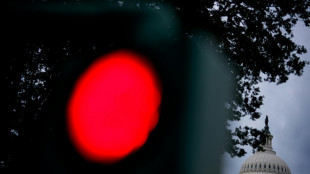 US Congress approves $9 bn in Trump cuts to foreign aid, public media
US Congress approves $9 bn in Trump cuts to foreign aid, public media
-
Misbehaving monks: Sex scandal shakes Thai Buddhist faithful

-
 Injury rules All Blacks wing Ioane out of third France Test
Injury rules All Blacks wing Ioane out of third France Test
-
China mulls economy-boosting measures to counter 'severe situation'

-
 Wallabies skipper Wilson concedes losing Valetini a massive blow
Wallabies skipper Wilson concedes losing Valetini a massive blow
-
Asian markets on course to end week on a positive note
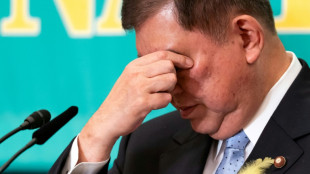
-
 UK 'princes in the tower' murder probe clears Richard III
UK 'princes in the tower' murder probe clears Richard III
-
From Antarctica to Brussels, hunting climate clues in old ice
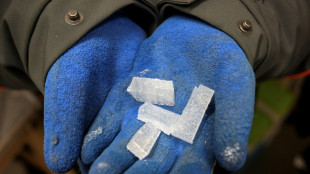
-
 Springboks pick dynamic half-backs for final Championship warm-up
Springboks pick dynamic half-backs for final Championship warm-up
-
Jorge Martin returns to MotoGP racing at revamped Brno

-
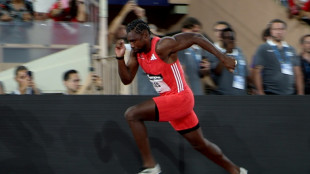 Olympic champion Lyles to make 100m season debut at London Diamond League
Olympic champion Lyles to make 100m season debut at London Diamond League
-
Japan's SMEs ready to adapt to Trump tariffs

-
 South Korea to end private adoptions after landmark probe
South Korea to end private adoptions after landmark probe
-
California to sue Trump govt over axed high-speed rail funds
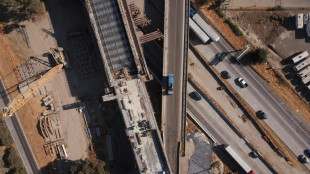
-
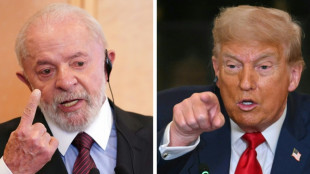 Brazil's Lula calls Trump's tariff threat 'unacceptable blackmail'
Brazil's Lula calls Trump's tariff threat 'unacceptable blackmail'
-
In rural Canadian town, new risk of measles deepens vaccine tensions

-
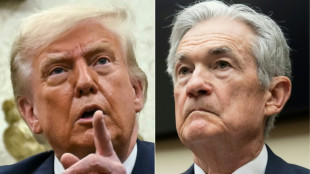 What to know about Trump's effort to oust Fed Chair Powell
What to know about Trump's effort to oust Fed Chair Powell
-
Trump threatens to sue WSJ over story on alleged 2003 letter to Epstein
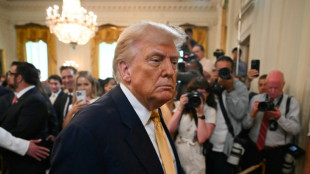
-
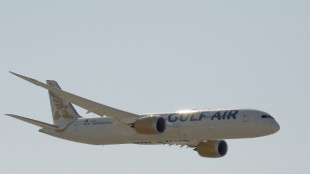 Gulf Air orders 12 Boeing 787 Dreamliners
Gulf Air orders 12 Boeing 787 Dreamliners
-
Japan rice prices double, raising pressure on PM
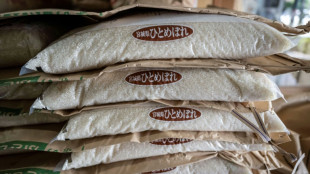

Sharaa's pullout from Syria Druze heartland exposes shaky leadership
Under Israeli bombardment and diplomatic pressure, Ahmed al-Sharaa pulled troops from Syria's Druze heartland -- a move that exposes the interim leader's weakness just as he sought to assert control.
Since seizing office in December after ousting longtime autocrat Bashar al-Assad, Sharaa has worked to recast himself from jihadist to statesman, even earning praise from US President Donald Trump as a "tough guy".
But in the early hours of Thursday, he was forced to announce the withdrawal of troops from the Druze-majority city of Sweida, framing it as an effort to avoid confrontation with Israel and prevent further destabilisation in a country still reeling from 14 years of war.
AFP looks at what drove Syria's interim president to this withdrawal -- and whether his leadership is now fatally undermined.
- 'Imbalance of power' -
In his Thursday speech, Sharaa praised the "effective intervention of American, Arab and Turkish mediation, which saved the region from an unknown fate".
That followed Israeli air strikes targeting the Syrian military headquarters and the vicinity of the presidential palace in Damascus.
It also came amid diplomatic pressure from the United States.
Gamal Mansur, a comparative politics researcher specialising in Syrian and Israeli studies at the University of Toronto, said he believed "the withdrawal was imposed on the authorities due to the imbalance of power caused by Israel's presence".
Syria "was forced to retreat because its position in Sweida was not that strong and it was unable to retain the land in Sweida without a high price that would force a second Israeli intervention", he said.
Sharaa admitted on Thursday that his options to avoid "open war" with Israel were limited.
Israeli Prime Minister Benjamin Netanyahu said the ceasefire in Syria was "obtained by force" and "not by demands, not by pleas".
A senior Western diplomat, who requested anonymity due to the sensitivity of the topic, told AFP that Sharaa "is very aware of the situation that he is in and he is realistic".
"He knows Syria is at a weak point and that the best option is to reach a deal with the Israelis."
Heiko Wimmen, project director for Iraq, Syria and Lebanon at International Crisis Group, said Sharaa's pullback showed he was "making a further step towards accepting that Israel basically projects power onto the doorstep of Damascus".
Since leading the overthrow of Assad, Sharaa has repeatedly said his country does not seek conflicts with its neighbours.
Damascus has acknowledged holding indirect talks to reduce tensions with Israel, which has occupied Syria's Golan Heights since 1967.
The Israeli army deployed troops into the UN-patrolled zone on the Golan after the fall of Assad and launched hundreds of bombing raids.
Mansur believes the Sweida events "will place Israel in a better position and with stronger negotiating terms".
The Western diplomat said that while full normalisation was unlikely, Israel could still reach a favourable security agreement with Syria.
- Internal pressure -
Sharaa and his government have been pushing for unified control of the country from Damascus, with the various armed factions, often tied to ethnic or religious identities, merged into the state's armed forces.
That goal was undermined by the events in Sweida, which remains outside Damascus's direct control, and major sectarian clashes like the coastal massacres in March, during which more than 1,700 mostly Alawite civilians were killed.
Sharaa's ability to control armed factions loyal to him, which include extremist groups and foreign jihadists, was heavily questioned following those incidents.
Washington had previously demanded that "foreign terrorists" leave Syria.
These developments reveal "the weakness of Sharaa's authority", Mansur said, adding the Syrian leader needed to consolidate his authority and secure control over the state's security apparatus.
Additionally, the Kurds in northeastern Syria are still demanding a decentralised system despite repeated rejections by Damascus.
Bedran Ciya Kurd, a senior official in the autonomous administration, said on Thursday that Damascus should "review" its attitude towards minorities.
Syria's Kurds may be in a stronger position after the Sweida clashes, according to Wimmen, who said there was now a "big question mark" over the idea of full integration with Damascus.
The Kurds now have "many reasons to be very careful about any form of integration", he said.
G.Stevens--AMWN